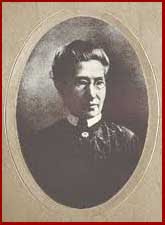This Day in Presbyterian History:
The Christianizing of the Christian
With no relevant date readily associated with historic Presbyterianism on this June 30th day, we turn to the benefit of effectual calling known as sanctification. Question and answer 35 of the Westminster Shorter Catechism asks and answers that “Sanctification is the work of God’s free grace, whereby we are renewed, in the whole man after the image of God, and are enabled more and more to die unto sin, and live unto righteousness.”
If you can remember the answers to justification and adoption (S.C. 33 and 34), you see immediately that this benefit is a “work of God’s free grace,” not an “act of God’s free grace.” The latter definition for justification and adoption spoke of something completed at once by God’s Spirit. Sanctification is a work, that is, one of progress in this spiritual life. As our title puts it, it is the Christianizing of the Christian.
The sphere and extent of this work of sanctification is “in the whole man,” or throughout the whole man. Sanctification, like depravity, is total in extent, though partial in degree. Why is that? Because sanctification is imperfect in this life. There abides in each one of His people still some remnants of the corruption of sin in every part of us. Paul realized this in Romans 7, when he acknowledged in verses 22, 23 “For I delight in the law of God, in my inner being, but I see in my members another law waging war against the law of my mind and making me captive to the law of sin that dwells in my members.” (ESV) The result of this is continual conflict between the flesh and the spirit, which are two opposite principles.
This work of God’s free grace has two aspects to it. The first speaks of “dying unto sin.” To die unto anything is to become indifferent to it, to shake off its power, to be superior to its attractions. In sanctification, the dominion of the whole body of sin is destroyed and the several lusts are to be more and more weakened and put to death.
The other aspect of sanctification is “living unto righteousness.” Holiness is to be our constant aim and lifestyle. In fact, “sanctification” and “holiness” come from the same root word in the original.
The end of sanctification is “the image of God.” Through His Spirit and Word, we are seeking to have a better likeness of God in our life. He is to be seen in our thoughts, words, and actions. This is the whole issue of sanctification.
Words to Live By: So, how is the work of sanctification going in your life? Are you going forward or backward? Two steps forward and one step backward? This work is a lifelong work. One day, in glory, we will have the final victory. Look forward to that day, and be zealous in growing in grace and the knowledge of the LordJesus Christ on this day.
Through the Scriptures: Amos 7 – 9
Through the Standards: The Second Commandment: duties required
WLC 107, S.C. 49 — “Which is the second commandment?
A. The second commandment is, Thou shalt not make unto thee any graven image, or any likeness of anything that is in heaven above, or that is in the earth beneath, or that is in the water under the earth. Thou shalt not bow down thyself to them, nor serve them: for I the Lord thy God am a jealous God, visiting the iniquity of the fathers upon the children unto the third and fourth generation of them that hate me; and showing mercy unto thousands of them that love me, and keep my commandments.”
WLC 108 — “What are the duties required in the second commandment?
A. The duties required in the second commandment are, the receiving, observing, and keeping pure and entire, all such religious worship and ordinances as God has instituted in his word; particularly prayer and thanksgiving in the name of Christ; the reading, preaching, and hearing of the word; the administration and receiving of the sacraments; church government and discipline; the ministry and maintenance thereof; religious fasting; swearing by the name of God; and vowing unto him; as also the disapproving, detesting, opposing all false worship; and, according to each one’s place and calling, removing it, and all monuments of idolatry.”
WSC 50 — “What is required in the second commandment?
A. The second commandment requires the receiving, observing, and keeping pure and entire, all such religious worship and ordinances as God has appointed in his Word.”

